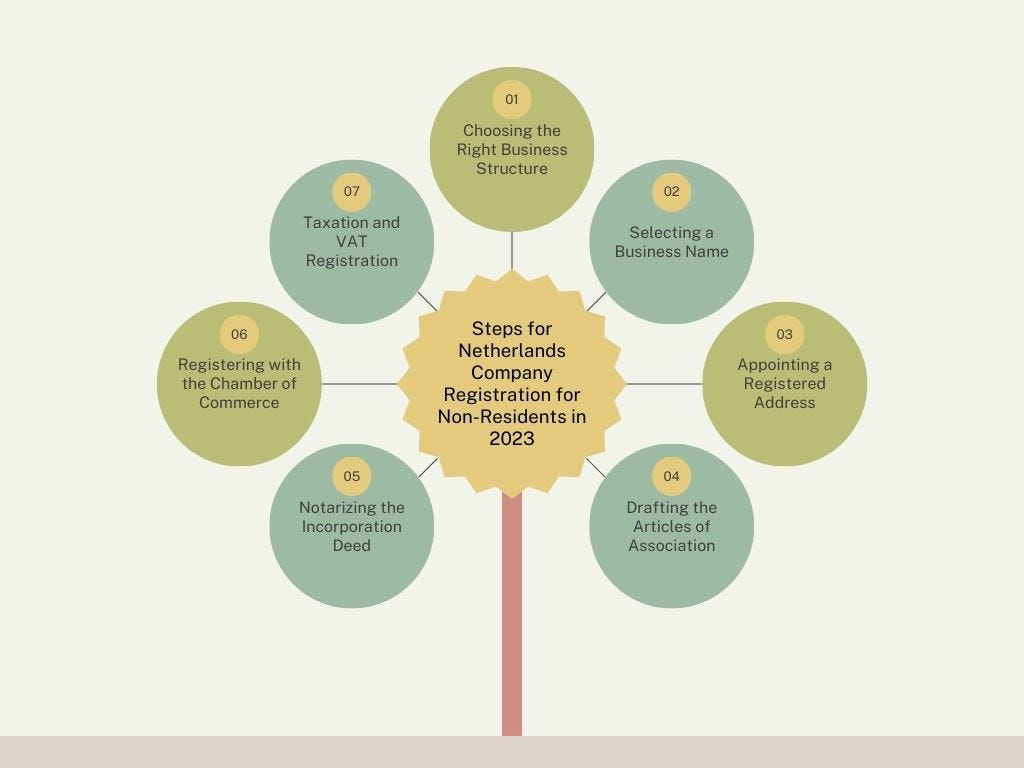
Introduction
If you’ve recently started a business in the Netherlands, one of the first steps you’ll need to take is registering your company at the Kamer van Koophandel (KVK), which translates to the Chamber of Commerce in English. The KVK is the official Dutch trade register where all businesses operating in the country must be registered. This registration is essential for a variety of reasons, including compliance with legal requirements, access to government services, and establishing your business’s credibility.
What Is KVK?
The KVK is a government agency that acts as the central repository for all business-related information in the Netherlands. Its primary function is to maintain the Dutch Trade Register, a database that contains details of all registered businesses in the country. The KVK plays a crucial role in promoting transparency, facilitating trade, and ensuring that businesses operate within the legal framework.
Documents Required For KVK Registration
Before delving into the specific documents you’ll receive after registering your Dutch company at the KVK, let’s first understand the documents you’ll need to complete the registration process. The following documents are typically required:
Valid Identification: You’ll need to provide a valid form of identification, such as a passport or identity card, for each shareholder, director, and ultimate beneficial owner (UBO) of the company.
Proof Of Address: You’ll also need to provide proof of address for each shareholder, director, and UBO. This can be in the form of a utility bill, bank statement, or rental agreement.
Proof Of Company Address: You’ll need to provide proof of the registered address of your company. This can be in the form of a lease agreement, rental contract, or utility bill.
Company Details: You’ll need to provide information about your company, such as its name, legal form, activities, and ownership structure.
The Registration Process At KVK
Once you have gathered all the necessary documents, you can proceed with the registration process at the KVK. The process typically involves the following steps:
Online Pre-Registration: Before visiting the KVK office, you’ll need to complete an online pre-registration form. This form collects basic information about your company and its shareholders, directors, and UBOs.
In-Person Appointment: After submitting the pre-registration form, you’ll need to schedule an in-person appointment at the KVK office. During this appointment, you’ll need to provide the required documents, pay the registration fee, and answer any additional questions.
Verification And Registration: Once you have submitted all the necessary documents and information, the KVK will verify the details provided. If everything is in order, your company will be registered in the Dutch Trade Register, and you’ll receive the relevant documents to confirm your registration.
What Document Do You Receive After KVK Registration?
After successfully registering your Dutch company at the KVK, you will receive several important documents that serve as official proof of your company’s existence and contain vital information about your business. The two key documents you can expect to receive are the Certificate of Incorporation and the Extract of the Chamber of Commerce (also known as Uittreksel Handelsregister).
Understanding The KVK Extract
The KVK Extract is a document that provides an official overview of your company’s details as recorded in the Dutch Trade Register. It contains information such as your company’s name, address, registration number, legal form, and activities. The KVK Extract is a crucial document that is often required for various legal and administrative purposes, including opening a business bank account, entering into contracts, and complying with tax obligations.
Importance Of The KVK Extract
The KVK Extract holds significant importance for your business. It serves as proof of your company’s legal existence and provides essential information that is frequently requested by third parties, such as banks, suppliers, and government agencies. By having a valid and up-to-date KVK Extract, you can demonstrate your company’s credibility and legitimacy, which can enhance your chances of securing partnerships, attracting investors, and gaining the trust of customers.
Other Documents Related To KVK Registration
In addition to the Certificate of Incorporation and the KVK Extract, there are other documents that you may receive or need to obtain after registering your Dutch company at the KVK. These documents can vary depending on the nature of your business and specific requirements. Some common examples include:
VAT Number: If your business is required to charge and collect Value Added Tax (VAT), you’ll need to apply for a VAT number. This number is issued by the Dutch tax authorities and is essential for invoicing, reporting VAT, and complying with tax regulations.
EORI Number: If your business engages in import or export activities with countries outside the European Union, you may need to obtain an Economic Operators Registration and Identification (EORI) number. This unique number is used for customs declarations and facilitates efficient customs procedures.
Business Licenses And Permits: Depending on the nature of your business activities, you may require specific licenses or permits to operate legally. These can include permits for activities such as selling alcohol, operating a restaurant, or offering professional services.
Conclusion
Registering your Dutch company at the KVK is a crucial step in establishing your business’s presence in the Netherlands. By understanding the documentation process and the specific documents you’ll receive, you’ll be better equipped to navigate the legal requirements and compliance obligations associated with running a Dutch company. The Certificate of Incorporation and the Extract of the Chamber of Commerce serve as official proof of your company’s existence and contain important information about your business. Additionally, other documents such as VAT numbers, EORI numbers, and business licenses may be required based on your specific business activities. By ensuring that you have all the necessary documents in order, you’ll be on the right path to success in the Dutch business landscape.

